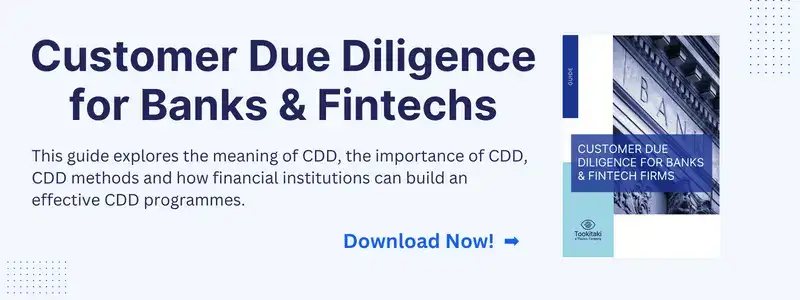Understanding Sanctions: A Complete Guide to Economic Restrictions
Sanctions play a critical role in international politics and commerce, serving as powerful tools to influence and deter certain behaviours. In particular, countries or international bodies impose economic sanctions to restrict trade and financial activities with specific individuals, entities, or nations.
This article provides a comprehensive guide to sanctions, exploring their definition, types, reasons for imposition, impacts, and the importance of an effective sanction screening procedure. Additionally, we delve into Tookitaki's Smart Screening solution and its role in ensuring compliance with sanction requirements.
Define Sanctions
Understanding the fundamentals of sanctions is crucial in comprehending their purpose and implications. Let's begin by defining what sanctions are and how they function.
What are Sanctions?
Sanctions are measures imposed by countries or international bodies to exert pressure on individuals, entities, or nations that engage in undesirable behaviour or actions. These measures aim to restrict or prohibit certain economic activities with the targeted parties, such as trade, investments, or financial transactions. Sanctions are often implemented to address various concerns, including human rights violations, nuclear proliferation, terrorism financing, or aggression. By imposing sanctions, countries and international organisations seek to influence the behaviour of the targeted entities or nations and promote compliance with international norms and standards.
How Do Sanctions Work?
Sanctions work by creating economic and diplomatic pressure on the targeted entities or nations. Typically, they involve imposing restrictions or limitations on various aspects of economic activities. These may include trade embargoes, financial restrictions, arms embargoes, travel bans, asset freezes, or visa restrictions.
By restricting access to markets, financial systems, or resources, sanctions aim to impose costs on the targeted parties, dissuading them from engaging in the behaviour or actions that led to the imposition of sanctions. The effectiveness of sanctions depends on factors such as the cooperation of other countries, the scope and severity of the measures, and the ability of the targeted entities or nations to find alternative ways to circumvent the restrictions.
Read More: Embargo Vs Sanction: Understanding International Trade Restrictions
Different Types of Sanctions
Sanctions can take various forms, each tailored to address specific concerns. Here, we explore the different types of sanctions commonly imposed.
Economic Sanctions
Economic sanctions refer to measures governments or international bodies impose that restrict or prohibit economic activities with a specific target. These sanctions can take various forms, including trade restrictions, financial limitations, or investment prohibitions. Economic sanctions aim to apply economic pressure on the targeted entity or nation, compelling them to change their behaviour or policies.
Trade Embargoes
Trade embargoes are economic sanctions involving the complete or partial trade restriction with a particular country or region. Under a trade embargo, the targeted entity or nation faces limitations on imports, exports, or both. The purpose of a trade embargo can vary, including addressing human rights violations, preventing weapons proliferation, or condemning aggressive actions.
Trade embargoes can have significant economic consequences for the targeted party, as it restricts their ability to engage in international trade, access essential goods, and generate revenue from exports.
Financial Restrictions
Financial restrictions are sanctions that aim to restrict the targeted entity's access to the global financial system. These restrictions can include freezing assets, prohibiting financial transactions, or limiting access to credit or international banking services. Financial restrictions are often employed to disrupt illicit financial flows, combat money laundering, or target individuals or entities involved in funding terrorism or engaging in other illicit activities.
By impeding their financial operations, these restrictions seek to weaken the targeted party's financial stability, limit their ability to access funds and deter them from engaging in prohibited activities.
Reasons for Imposing Sanctions
Countries or international organizations implement sanctions for a range of reasons. This section sheds light on the primary motivations behind imposing sanctions.
Human Rights Violations
Sanctions targeting human rights violations are imposed to address and deter systematic or widespread human rights abuses. These sanctions aim to hold individuals, organizations, or governments accountable for human rights violations such as torture, extrajudicial killings, or mass atrocities.
Nuclear Proliferation
Sanctions related to nuclear proliferation are designed to curb the spread of nuclear weapons and deter countries or entities from developing or acquiring nuclear weapons capabilities. These sanctions target countries that violate international non-proliferation agreements or engage in activities that raise concerns about their nuclear ambitions. The sanctions can include trade restrictions on sensitive goods, technology, or equipment and financial measures that hinder nuclear-related transactions.
Terrorism Financing
Sanctions against terrorist financing focus on disrupting the financial networks that support terrorist organizations. These sanctions target individuals, entities, or countries involved in providing financial assistance, resources, or support to terrorist activities.
By imposing financial restrictions, freezing assets, and blocking financial transactions, these sanctions aim to cripple the financial infrastructure of terrorist organizations, deter their activities, and prevent them from accessing funds for planning and carrying out acts of terrorism.
Who Imposes Sanctions
Sanctions are imposed by international organisations (United Nations, Interpol), a group of nations (the European Union) and individual countries (the US, the UK, Canada, etc). These organisations and governments create sanctions regimes and publish sanction lists.
Governments and financial agencies across the world maintain a number of targeted sanctions lists. Sanctions lists are often made accessible online so that firms may search and reference them before engaging in commerce with a foreign individual or company. The major sanction lists are listed below.
- The United Nations Security Council (UNSC) Consolidated Sanctions List
- US Consolidated Sanctions List
- Office of Foreign Assets Control (OFAC) — Specially Designated Nationals (US)
- Office of the Superintendent of Financial Institutions Sanctions List (Canada)
- Bureau of Industry and Security Sanctions List (US)
- Department of State, AECA Debarred List (US)
- Department of State, Non-proliferation Sanctions List (US)
- EU Financial Sanctions
- UK Financial Sanctions (HMT)
- Australian Sanctions
- Consolidated Canadian Autonomous Sanctions List
- European External Action Service Consolidated List
- Us Cia World Leaders Pep List
- World Presidents PEP List
- Council of Europe Assembly PEP List
- Every Politician PEP List
- Switzerland Consolidated List
- Capital Market Board Of Turkey Operation Banned List
- Interpol Wanted List
- Turkish Terror Wanted List
- Interpol Yellow Wanted List
- Interpol UN Wanted List
Advantages and Disadvantages of Sanctions
The table below presents the advantages and disadvantages of sanctions:
| Aspect | Advantages | Disadvantages |
|---|---|---|
| Political Impact |
|
|
| Economic Impact |
|
|
| Humanitarian Impact |
|
|
| Effectiveness |
|
|
Impact of Sanctions
Sanctions can significantly affect the targeted individuals, entities, and economies. This section examines the potential impacts of sanctions.
Economic Consequences
Sanctions can have significant economic consequences for the targeted individuals, organizations, or countries. These consequences can include reduced trade and investment opportunities, declining GDP growth, inflation, currency depreciation, and disruptions in supply chains. The impact can be particularly felt in sectors heavily dependent on international trade, such as exports, imports, and financial services.
Political Effects
Sanctions often have political effects on the targeted entities or countries. They can isolate them diplomatically, strain bilateral or multilateral relations, and undermine their international reputation. Sanctions can be used as a tool to exert political pressure, influence behaviour, and promote compliance with international norms and regulations. In some cases, sanctions may contribute to internal political changes or power shifts within a country.
Social and Humanitarian Implications
Sanctions can have significant social and humanitarian implications, particularly for vulnerable populations. These implications can include limited access to essential goods and services, such as food, medicine, and humanitarian aid. Sanctions may restrict or hinder the delivery of humanitarian assistance, exacerbating humanitarian crises and impacting the well-being of innocent civilians.
Benefits of a Sanction Screening Procedure
Establishing a robust sanction screening procedure is essential for financial institutions to comply with regulatory requirements and avoid penalties. Here are the key benefits of implementing such a process.
Risk Mitigation
Implementing effective sanction screening procedures and compliance measures can help financial institutions mitigate the risk of engaging in prohibited activities and facing legal and financial consequences. Institutions can identify and prevent potential sanctions violations by conducting thorough due diligence and screening processes, thereby safeguarding their operations and reputation.
Compliance with International Standards
Adhering to international standards and regulations is essential for financial institutions to maintain their integrity and credibility in the global market. Compliance with international sanctions frameworks, such as those set by the United Nations, European Union, or other regional organizations, demonstrates a commitment to responsible business practices.
Reputation Protection
Protecting their reputation is paramount for financial institutions operating in today's interconnected world. Non-compliance with sanctions regulations can lead to severe reputational damage, loss of trust among stakeholders, and negative public perception.
How Sanction Screening Works
An effective sanction screening process involves comprehensive measures to identify and assess individuals and entities subject to sanctions. This section provides insights into the essential components of sanction screening. It involves comparing the names of individuals, entities, and organizations against various sanctions lists to check for potential matches or similarities.
The process typically follows these steps:
- Data Collection: Financial institutions gather relevant customer data, including names, addresses, dates of birth, and other identifying information. This data is usually obtained during the onboarding process or through periodic reviews.
- Watchlist Database: Institutions maintain or subscribe to sanctions databases that contain names of individuals or entities involved in illegal activities. To maintain precision, financial institutions regularly update their watchlist databases with the names of individuals and entities associated with illicit activities.
- Name Matching: The customer names collected are compared against the entries in the watchlist database using sophisticated screening algorithms. This process involves both exact and fuzzy matching techniques to identify potential matches.
- Risk Scoring: Each potential match is assigned a risk score based on the level of similarity and relevance to the institution's risk profile. Higher risk scores indicate a higher likelihood of a match and potential risk.
- Investigation and Review: When a potential match is identified, it triggers an alert for further investigation. AML compliance professionals review the match to determine its validity and assess the potential risk. They may gather additional information or documentation from the customer to validate or rule out any suspicious activity.
- Decision Making: Institutions make informed decisions based on the investigation findings regarding the identified matches. Suppose there is reasonable suspicion of illicit activity. In that case, the institution may choose to escalate the case for further scrutiny, report to regulatory authorities, or take appropriate action per internal policies and legal obligations.
Tookitaki Smart Screening Solution
Tookitaki’s AML Suite includes a unique Smart Screening solution. With AI-powered identity matching, Tookitaki's Smart Screening solution accurately scores and differentiates true matches from false ones, effectively reducing false positive hits in name and transaction screening processes. This capability extends to prospect, name, and transaction screening, providing comprehensive coverage against financial crimes and sanction violations.
In conclusion, sanctions are integral to global efforts to address various concerns, from human rights violations to terrorism financing. Understanding the definition, types, reasons, and impacts of sanctions is crucial for organizations operating in the international arena. Businesses can ensure compliance, mitigate risks, and protect their reputation by implementing a robust sanction screening procedure. Tookitaki's Smart Screening solution provides advanced capabilities to streamline this process and effectively navigate the complex sanctions landscape.
Book a demo today to experience the power of Tookitaki's Smart Screening solution and enhance your sanctions screening capabilities. Discover how our advanced technology can help you achieve efficient and effective compliance while mitigating financial crime risk.
Anti-Financial Crime Compliance with Tookitaki?




